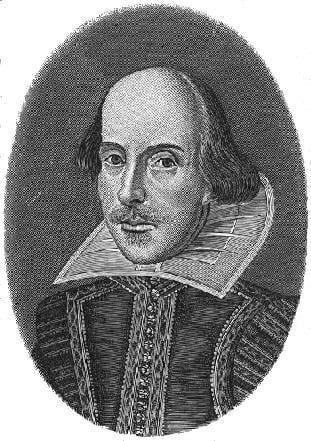William Shakespeare Biography
For as long as anyone can remember Shakespeare has been claimed to be a Freemason. This aspect to the life of William Shakespeare has been asserted from both within and without Freemasonry. Significantly, the most numerous and loudest voices are those of the Masons themselves: they seem very sure that the bard was one of their own.
In the last century a Baconian enthusiast called Alfred Dodd wrote a book (no longer available) asserting that Shakespeare was actually ‘the founder’ of Freemasonry. This folly aside, he did also provide a large body of evidence from the plays pointing to Shakespeare’s inside knowledge of Masonry. Dodd was a Freemason himself, although he doesn’t seem to have scrambled very high up the winding staircase.
The subject was more recently aired in the winter 1998 edition of the in-lodge journal Freemasonry Today (1). The author of the piece, Peter Dawkins (who claims not to be a Freemason) finds numerous cases of arcane Masonic knowledge in the plays; he cites examples in Loves Labour Lost, Henry V, Coriolanus, Measure For Measure, Julius Caesar, Henry VI, Pt. 2 and The Tempest. A version of this paper is posted on the Sirbacon website.
A particularly spectacular indication of Masonic interest in Shakespeare occurred at the laying of the foundation stone of the Shakespeare Memorial Theatre in July 1929. On this occasion there was a massive Masonic ceremony, presided over by the Grand Master of the United Grand Lodge of England and attended by over 600 Masons in full regalia. The scale of this jamboree points to the fact that the Craft takes the Bard very seriously indeed.
The play most likely to have a Masonic subtext is one actually not mentioned by Dawkins: this is the play set in the ancient Egypt of Masonic mythology, Antony and Cleopatra. In the following paper I seek to demonstrate that this play is profoundly Masonic, both in spirit and substance, and could only have been written by a Royal Arch Mason.
Notes
1) I would like to take the opportunity to thank the publishers, who provided me with a free copy of this edition when I enquired about it. Many Masons seem to be genuinely charitable people.
Leave Your Feedback Below
Submit your review | |

